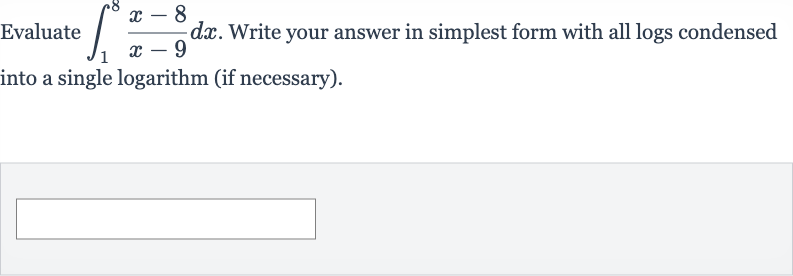Full solution
Q. Evaluate . Write your answer in simplest form with all logs condensed into a single logarithm (if necessary).
- Evaluate Integral: We need to evaluate the integral of the function from to . To do this, we will first perform a partial fraction decomposition if possible. However, in this case, the numerator is of lower degree than the denominator, and the fraction is already simplified, so we can proceed to integrate directly.
- Rewrite Integral: Let's rewrite the integral by splitting the fraction into two parts:This is done by dividing into , which gives us with a remainder of .
- Integrate Separately: Now we can integrate each part separately:The first integral is straightforward, and the second integral is a standard logarithmic integral.
- Evaluate First Integral: Evaluating the first integral gives us:
- Evaluate Second Integral: Evaluating the second integral gives us:We will evaluate this at the bounds and .
- Evaluate Logarithmic Part: Plugging in the bounds for the logarithmic part, we get:Since the natural logarithm of is , this simplifies to:
- Combine Results: Combining the results from the two integrals, we get:This is the final answer, and it is already in the simplest form with a single logarithm.

